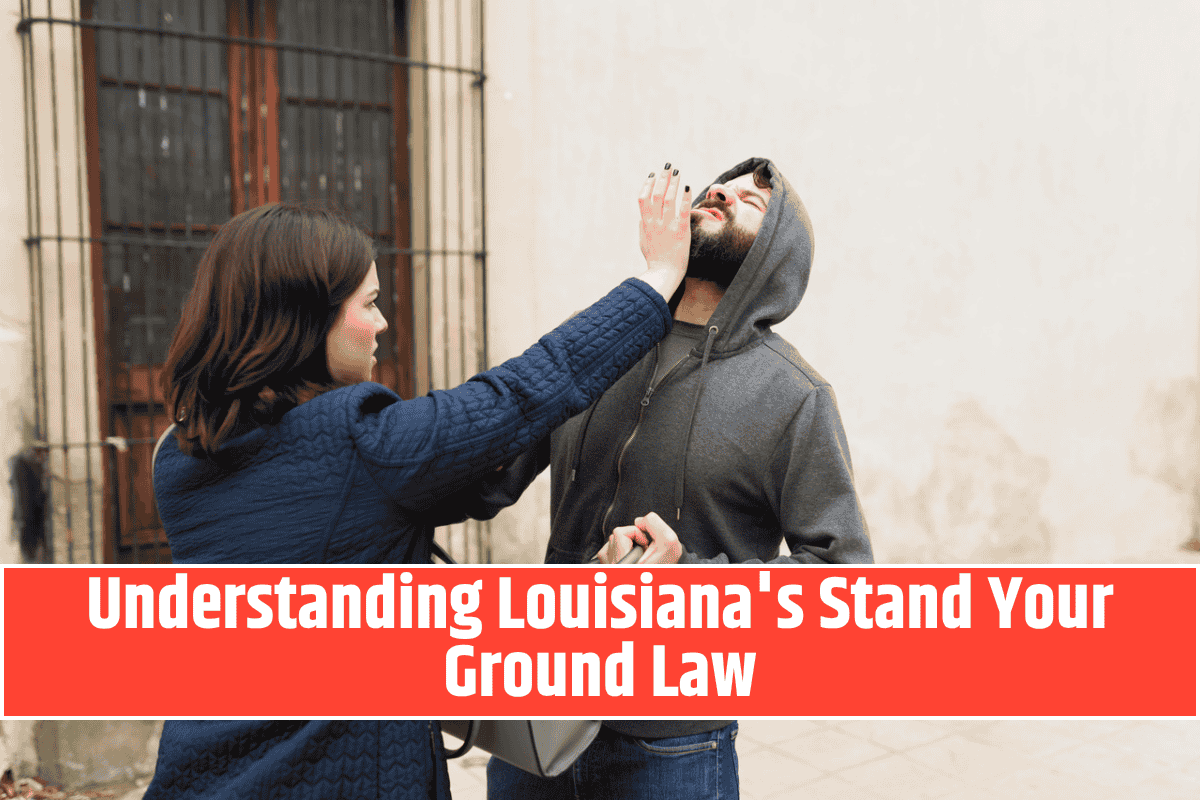Louisiana has a Stand Your Ground law, which means that individuals in the state do not have a duty to retreat before using force, including deadly force, in self-defense if they are in a place where they have the legal right to be and are not engaged in illegal activity.
This law allows individuals to “meet force with force” when they reasonably believe that such force is necessary to prevent imminent death, great bodily harm, or the commission of a violent felony against themselves or another person.
Key Provisions of Louisiana’s Stand Your Ground Law
Louisiana’s Stand Your Ground law provides several key provisions that define when and how force can be used for self-defense:
No Duty to Retreat
If you are in a place where you are lawfully allowed to be, you do not have to retreat before using force—even deadly force—if you face a reasonable threat. This means you can stand your ground and defend yourself without the obligation to retreat, even if there is a safe way to escape.
This principle applies in public spaces as long as you are legally present and are not engaging in any unlawful activities.
Reasonable Belief
You are allowed to use deadly force only if you reasonably believe that it is necessary to prevent imminent death, great bodily harm, or a violent felony. The belief that force is necessary must be based on the circumstances at the time, and it must be reasonable in the eyes of the law.
Lawful Presence
The law applies only to individuals who are not involved in illegal activity when the incident occurs. For example, if someone is committing a crime at the time of the incident, they would not be protected under the Stand Your Ground law. It’s important to ensure that you are lawfully present when defending yourself under this law.
Castle Doctrine
Louisiana also follows the Castle Doctrine, which applies to incidents occurring in your home, business, or vehicle. The Castle Doctrine presumes that you have a reasonable belief that you are in danger when someone unlawfully enters or tries to forcibly remove you from these spaces.
Under these circumstances, you have the right to use force, including deadly force, to defend yourself or your property.
Statutory Language
Louisiana’s Revised Statutes (RS 14:20 and 14:19) outline the specific provisions for the use of force and deadly force:
No Duty to Retreat: According to the statute, a person who is not engaged in unlawful activity and is in a place where they have a right to be shall have no duty to retreat before using force or violence, including deadly force. Additionally, the possibility of retreat cannot be considered when determining if the use of force was reasonable.
Castle Doctrine: The law further states that if someone unlawfully enters your home, business, or vehicle, there is a legal presumption that you were justified in using deadly force to protect yourself.
Important Limitations
While Louisiana’s Stand Your Ground law provides strong protections for self-defense, there are important limitations to consider:
Illegal Activity
The law does not apply if the individual is engaged in illegal activity at the time of the incident. For example, if someone is involved in drug crimes or any other unlawful conduct, they would not be protected under the Stand Your Ground law, even if they face a threat.
Excessive or Unreasonable Force
The justification for using deadly force can fail if the force used is found to be unreasonable or excessive. The force you use must be proportional to the threat faced. For example, if someone is threatening you with minor harm, it would be unreasonable to use deadly force.
Deadly force is only justified in situations where there is an imminent danger of death or great bodily harm.
Proportionality
The use of force must be based on a reasonable belief of imminent harm, and the level of force must be proportional to the threat. This means that if the threat is not serious or is more minor in nature, using deadly force could be considered excessive and unlawful.
Louisiana’s Stand Your Ground law gives individuals the right to defend themselves without the obligation to retreat in the face of a threat, as long as they are lawfully present and acting reasonably.
This protection extends to homes, businesses, and vehicles under the Castle Doctrine, where individuals are presumed to have a reasonable belief that force is necessary to prevent unlawful entry or to defend themselves from intruders.
The law makes it clear that individuals must meet specific criteria, including being lawfully present and acting within reasonable bounds of force. While the law provides significant protection for those facing threats, it is important to understand the limits on excessive force and illegal activity, as well as the need to act proportionately when using force.
[1] https://www.brettkduncanlaw.com/blog/2025/02/facing-louisiana-assault-charges-learn-about-self-defense-laws/
[2] https://en.wikipedia.org/wiki/Stand-your-ground_law
[3] https://giffords.org/lawcenter/state-laws/stand-your-ground-in-louisiana/












